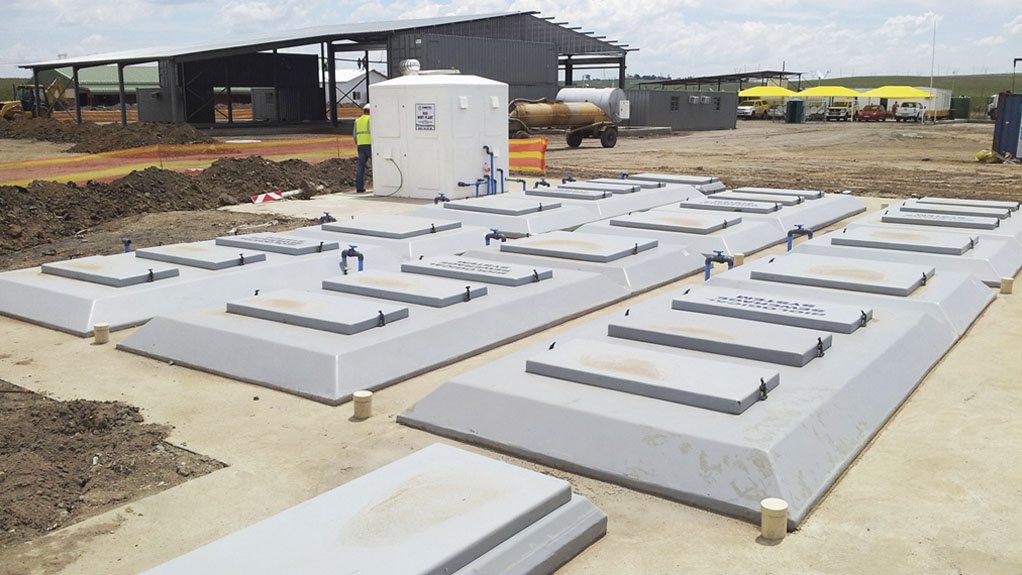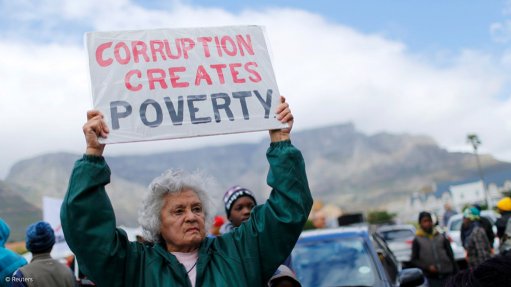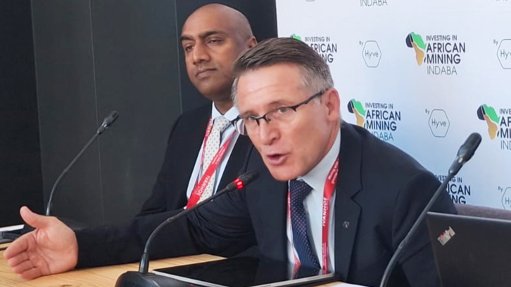Wastewater treatment necessary to grow the economy


UNDERCOVER OPERATION The underground biological wastewater treatment plant should remain operational for up to 25 years
Consistent and sustainable water supply is necessary to ensure socioeconomic growth; therefore, wastewater treatment, as a comparatively cost-effective solution that reduces strain on the available water supply, is vital to economic growth in water-stressed countries, says waste management company Interwaste.
Apart from augmenting water supply to boost economic activity, wastewater treatment, along with other water management solutions, creates business and employment opportunities, especially in light of climate change and its expected cost-accretive effects on water resources worldwide.
Interwaste’s wastewater treatment head, Theunis Coetzer, says the effects of the drought on South Africa’s traditionally strained water supply have resulted in government and the private sector reprioritising wastewater treatment and reuse.
He notes that Interwaste has completed the installation of 54 wastewater treatment plants in the past year. The projects range from large mining installations to small domestic systems for individuals. He adds that Interwaste clients are not only located in South Africa but also elsewhere in Africa, with 9 of the 54 installations installed beyond the country’s borders.
One such project was completed for property development group Terrace Africa, which developed the Tete Junction, a new mall in Tete North, in Mozambique. Terrace Africa contracted Interwaste to conduct the biological wastewater treatment.
Coetzer explains that biological wastewater treatment is an accepted practice globally. It involves confining naturally occurring bacteria in extremely high concentrations in tanks. The bacteria, together with some protozoa and other microbes, collectively referred to as activated sludge, are treated in an anaerobic and aerobic process. They are then used to eliminate sludge production and waste.
“ . . .[T]he bacteria remove small organic carbon molecules by ‘eating’ them. This reduces growth of harmful bacteria and cleanses the wastewater. The treated wastewater or effluent can then be discharged to receiving waters – normally a river or the sea – or used for irrigation, to flush toilets or general nonpotable uses,” Coetzer notes.
The Tete plant, commissioned in March, treats 30 000 ∙/d. Coetzer notes that all treated water is reused for toilet flushing and irrigation around the mall, reducing the cost of water, effecting a significant saving.
Interwaste was also responsible for the design, construction supervision, manufacturing, installation and commissioning of a complete wastewater treatment plant for cement manufacturer PPC at its Lichtenburg plant, in the North West. Coetzer notes that the civil construction phase was conducted by a PPC-appointed contractor. The plant should remain operational for up to 25 years. It treats 100 000 ∙/d and was commissioned in February.
Wastewater Treatment Can Alleviate SA’s Water Woes
“In the past, wastewater treatment was seen as an accessory . . . nice to have, but not a need,” he adds. This means that, historically, very little focus – in terms of infrastructure – was placed on establishing wastewater treatment facilities. Coetzer comments that, to date, most wastewater solutions are predominantly driven and implemented by corporate South Africa.
He asserts that, as water infrastructure and the water-security crisis worsen, innovation and implementation regarding water recycling and wastewater treatment should become part of government’s infrastructure development plans.
Coetzer believes that South Africa should transition away from the current situation, where the private sector is still the primary force implementing wastewater treatment solutions.
He says the Department of Water and Sanitation has indicated that it provides water and sanitation for 80% of South Africa’s population: “However, that leaves a solid gap in our water infrastructure and, if we consider the recent drought in Southern Africa, there is no doubt that this gap will increase if further infrastructure investment is not made in the short term.”
The lack of access to water and sanitation, coupled with the amount of wastewater being generated, demonstrates how important the wastewater sector is in the water infrastructure framework, Coetzee states.
“If we consider that 100% of the effluent can be recycled – when done properly – there is no doubt that, through wastewater treatment, we can provide and are providing large banks of water, which might previously not have been considered as ‘safe’ for the environment or community.”
He adds that innovative wastewater management can result in the redistribution of this water into the environment for irrigation and dust suppression, as well as to replenish rivers and catchments in water infrastructure networks. “The technology is so advanced today that effluent can even be treated further into potable (drinking) water for areas where it is in short supply.”
This type of recycling programme not only has a highly positive impact on the availability of water but also ensures previously nonconsumable water can be used in key areas of communities – resulting in good-quality water for consumption and use in industry, Coetzer reaffirms.
Article Enquiry
Email Article
Save Article
Feedback
To advertise email advertising@creamermedia.co.za or click here
Comments
Announcements
What's On
Subscribe to improve your user experience...
Option 1 (equivalent of R125 a month):
Receive a weekly copy of Creamer Media's Engineering News & Mining Weekly magazine
(print copy for those in South Africa and e-magazine for those outside of South Africa)
Receive daily email newsletters
Access to full search results
Access archive of magazine back copies
Access to Projects in Progress
Access to ONE Research Report of your choice in PDF format
Option 2 (equivalent of R375 a month):
All benefits from Option 1
PLUS
Access to Creamer Media's Research Channel Africa for ALL Research Reports, in PDF format, on various industrial and mining sectors
including Electricity; Water; Energy Transition; Hydrogen; Roads, Rail and Ports; Coal; Gold; Platinum; Battery Metals; etc.
Already a subscriber?
Forgotten your password?
Receive weekly copy of Creamer Media's Engineering News & Mining Weekly magazine (print copy for those in South Africa and e-magazine for those outside of South Africa)
➕
Recieve daily email newsletters
➕
Access to full search results
➕
Access archive of magazine back copies
➕
Access to Projects in Progress
➕
Access to ONE Research Report of your choice in PDF format
RESEARCH CHANNEL AFRICA
R4500 (equivalent of R375 a month)
SUBSCRIBEAll benefits from Option 1
➕
Access to Creamer Media's Research Channel Africa for ALL Research Reports on various industrial and mining sectors, in PDF format, including on:
Electricity
➕
Water
➕
Energy Transition
➕
Hydrogen
➕
Roads, Rail and Ports
➕
Coal
➕
Gold
➕
Platinum
➕
Battery Metals
➕
etc.
Receive all benefits from Option 1 or Option 2 delivered to numerous people at your company
➕
Multiple User names and Passwords for simultaneous log-ins
➕
Intranet integration access to all in your organisation



















